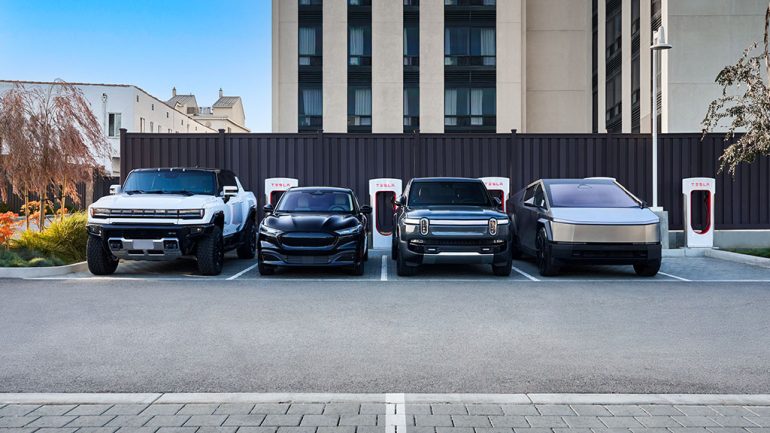
If you’re considering buying an electric vehicle in 2025, you’re stepping into a market that’s both exciting and uncertain. Automakers continue to roll out new EVs with better range, faster charging, and more affordability. But looming tariffs, potential changes to tax credits, and shifting used EV prices could significantly impact your buying decision. Here’s what you need to know about the current market conditions and how they might shape your next EV purchase.
One of the biggest factors affecting the EV market in 2025 is the potential for increased tariffs on imported EVs and their components. The Trump administration has proposed tariffs that could significantly raise the price of EVs built overseas or containing foreign-made parts, including batteries. While estimates vary, some analysts predict these tariffs could add thousands of dollars to the cost of a new EV.
This is especially concerning for brands like Hyundai, Kia, and BMW, which manufacture many of their EVs outside the U.S. Even Tesla, which produces most of its vehicles domestically, sources key components from overseas, meaning its prices could also rise if tariffs extend to battery materials.
If these tariffs take effect and remain in place for a long duration, the affordability of EVs could take a hit—especially since another major incentive may be on the chopping block.
Currently, buyers can receive up to $7,500 in tax credits for new EVs and $4,000 for used EVs, making electric vehicles more affordable. However, the new administration has expressed interest in repealing these tax credits, which would remove one of the biggest financial incentives for EV buyers.
If tax credits disappear and tariffs drive up prices, the cost of a new EV could jump significantly. This could make leasing a more attractive option, as many automakers offer strong lease incentives, and tax credits often apply to leased vehicles in a different way that may remain intact even if the purchase incentives disappear.
Despite potential cost increases, EV buyers will benefit from some major improvements in 2025, particularly in charging infrastructure. Tesla’s Supercharger network—previously exclusive to Tesla owners—now allows most non-Tesla EVs to charge, significantly increasing the number of reliable public fast-charging stations.
Additionally, EV range is improving. Models like the Hyundai Ioniq 5, Ford Mustang Mach-E, and Chevrolet Equinox EV offer over 300 miles of range, while premium models from Mercedes-Benz, Lucid, and GM’s electric trucks can exceed 400 miles per charge. The growing number of models across different price points gives buyers more choices than ever before.
One of the biggest trends in the EV market is the sharp decline in used EV prices. For example, a 2022 Ford Mustang Mach-E GT, which originally sold for over $60,000, can now be found in the low $30,000s. This makes buying a used EV an incredible deal—if you’re comfortable with potential battery degradation and the lack of incentives that new EVs benefit from.
However, if you plan to sell or trade in an EV in a few years, be aware that resale values are dropping faster than gas-powered vehicles. If you finance your EV, you could end up owing more than it’s worth—a situation that many current EV owners are already experiencing.
If you’re in the market for an EV, the decision to buy now or wait depends on several factors.
Buy Now If:
Wait If:
2025 is shaping up to be a pivotal year for EV buyers. While the market is filled with innovation, potential tariffs and tax credit repeals could make new EVs more expensive. If you’re serious about going electric, it might be wise to buy sooner rather than later—especially if you want to lock in federal incentives before they’re gone.
On the other hand, if you’re open to a used EV or leasing, you might find even better deals in the near future. No matter which route you choose, staying informed will help you make the best decision in this evolving EV landscape.

Mike Floyd is a finance executive by trade and a car enthusiast at heart. As a CFO with a keen eye for detail and strategy, Mike brings his analytical mindset to the automotive world, uncovering fresh insights and unique perspectives that go beyond the surface. His passion for cars—especially his favorite, the Porsche 911, fuels his contributions to Automotive Addicts, where he blends a love for performance and design with his professional precision. Whether he’s breaking down industry trends or spotlighting emerging innovations, Mike helps keep the site both sharp and forward-thinking.